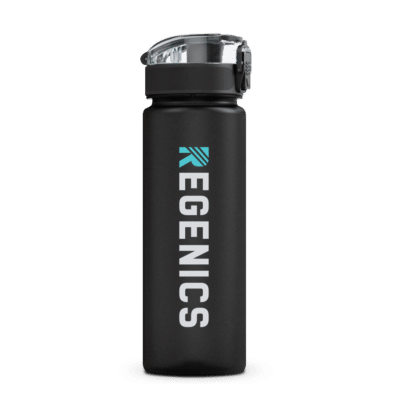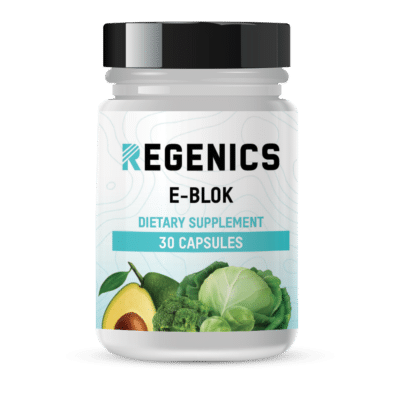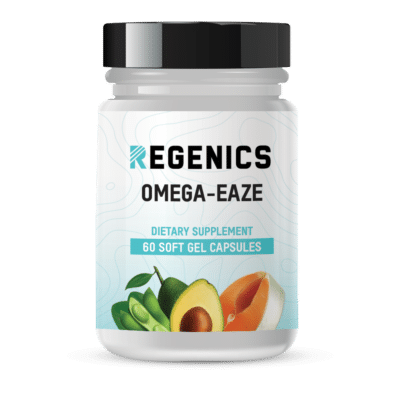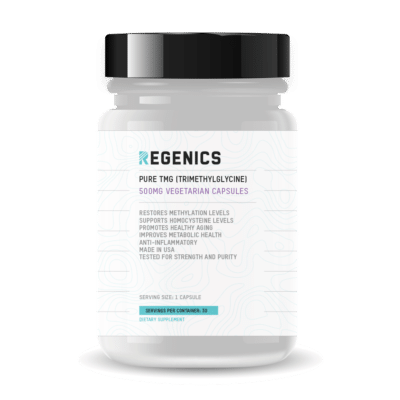Biotin (Vitamin B7) Injection Kit
- IMPROVES HAIR GROWTH
- STRENGTHENS NAILS
- MAINTAINS HEALTHY SKIN
- HELPS REGULATE CHOLESTEROL
- PREVENTS GREY HAIR
Compounded in USA
Pharmaceutical Grade
10ml Vial
10mg/mL
For IM Use Only
$199.00 — or Auto-refill and save up to 10%
Description
This medication requires a prescription. Learn more about how Regenics uses free telehealth consults with our licensed medical providers to prescribe and fill this medication.
Biotin is a water-soluble B vitamin found naturally in some foods and also in supplements. It plays a vital role in assisting enzymes to break down fats, carbohydrates, and proteins in food. Biotin also helps to regulate signals sent by cells and the activity of genes.
Biotin (vitamin H; coenzyme R; classified as a B vitamin) is a dietary component that is important for the metabolism of carbohydrates, fats, and amino acids. It is found primarily in liver, kidney, and muscle. Biotin functions as an essential cofactor for five carboxylases that catalyze steps in fatty acid, glucose, and amino acid metabolism. It is also an important factor in histone modifications, gene regulation, and cell signaling. Mammals must consume biotin to replenish stores. Sources of biotin include organ meats, eggs, fish, seeds, and nuts. As a dietary supplement, biotin has been promoted to be useful in the treatment of hair and nail problems, cradle cap (seborrheic dermatitis) in phenylketonuria patients, biotinidase deficiency, diabetes, peripheral neuropathy, candida infections, and high cholesterol. It has also been used in pregnancy, hemodialysis, and peritoneal dialysis, as biotin deficiency is more likely in these situations. Biotin is found in many cosmetics products. Radiolabeled biotin is used for pretargeted radioimmunotherapy of cancerous tumors.
Biotin is found naturally in some foods and used as a dietary supplement. It is important for the metabolism of carbohydrates, fats, and amino acids. It is found primarily in liver, kidney, and muscle. Biotin functions as an essential cofactor for five carboxylases that catalyze steps in fatty acid, glucose, and amino acid metabolism. It is mostly protein-bound in foods such as organ meats, eggs, nuts, and soybeans. Gastrointestinal enzymes break down ingested biotin via proteolysis. This creates biocytin, which is then cleaved by biotinidase into free biotin and lysine. Free biotin is then absorbed in the small intestine. Biotin can be used for metabolism issues such as biotinidase, holocarboxylase synthetase, and isolated carboxylase enzyme deficiencies due to its essential role in the metabolism of fatty acids, glucose, and amino acids.
DEFICIENCY
Symptoms of biotin deficiency start gradually and can build up over time.
Symptoms can include thinning hair, progressing to loss of hair across the body, and a scaly, red rash around body openings, including the eyes, nose, mouth, and anus. Conjunctivitis can also develop. About a third of pregnant women show a mild biotin deficiency despite adequate intake, though the exact reason is not clear.
Adults with biotin deficiency may suffer:
- seizures
- skin infections
- brittle nails
- neurological problems, such as depression, lethargy, hallucinations, and paresthesias (pins and needles) in the extremities




